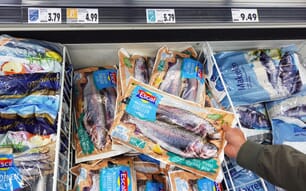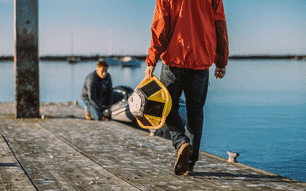The Coalition, FishMedPlus, is chaired by Peter Jones, on behalf of the Federation of Veterinarians of Europe (FVE), and consists of 10 experts both from the aquaculture industry, academia, regulatory authorities, legislators, the animal health industry and the veterinary profession.
The current lack of approved products is a serious constraint on the prevention and treatment of disease, leading to welfare problems and hampering the growth of European Aquaculture.
The Coalition is established for a 3-year period and will take a 3-step working approach. First they will do a gap analysis, investigating which products are needed on the market today and in the future.
Secondly, they will investigate the barriers and solutions, including environmental risk assessment. Lastly, they will explore ways to stimulate availability of further treatments for aquaculture animal diseases.
Following on last weeks reports about the problems of waste fishing gear, this week TheFishSite spoke to Harry Owen, sustainability manager of Newhaven seafood supplier, MCB Seafoods, who has launched a new scheme to recycle old fishing nets.
Launched on the south coast of England, the scheme allows the fishermen to deposit their end of life fishing gear on the harbours for it to be collected and then sent for recycling free of charge.
Previously, the fishermen would have to pay for the nets to be taken away to go to landfill, costing them about £300 each time.
All the old nets are shipped to Plastix in Denmark where the different nylon and plastic materials are broken down and made into materials that can be reused.
According to Jacob Falsig, the director of Plastix, all the materials can be recycled except the typhoon wires in the nets. And the recaptured materials go to make products such as nylon socks, skateboards, and Lego bricks.
In market news, Thai Union Group has now completed its acquisition of a 51 per cent stake in the German shelf-stable seafood leader, Rugen Fisch.
“I am delighted about the completion of this acquisition,” said Andrew Bergmann, CEO of Rugen Fisch.
“The integration will enable us to pursue our growth strategy and strengthen our foundation across Germany by increasing our ability to deliver superior value to our customers, consumers, employees and relevant stakeholders.”




